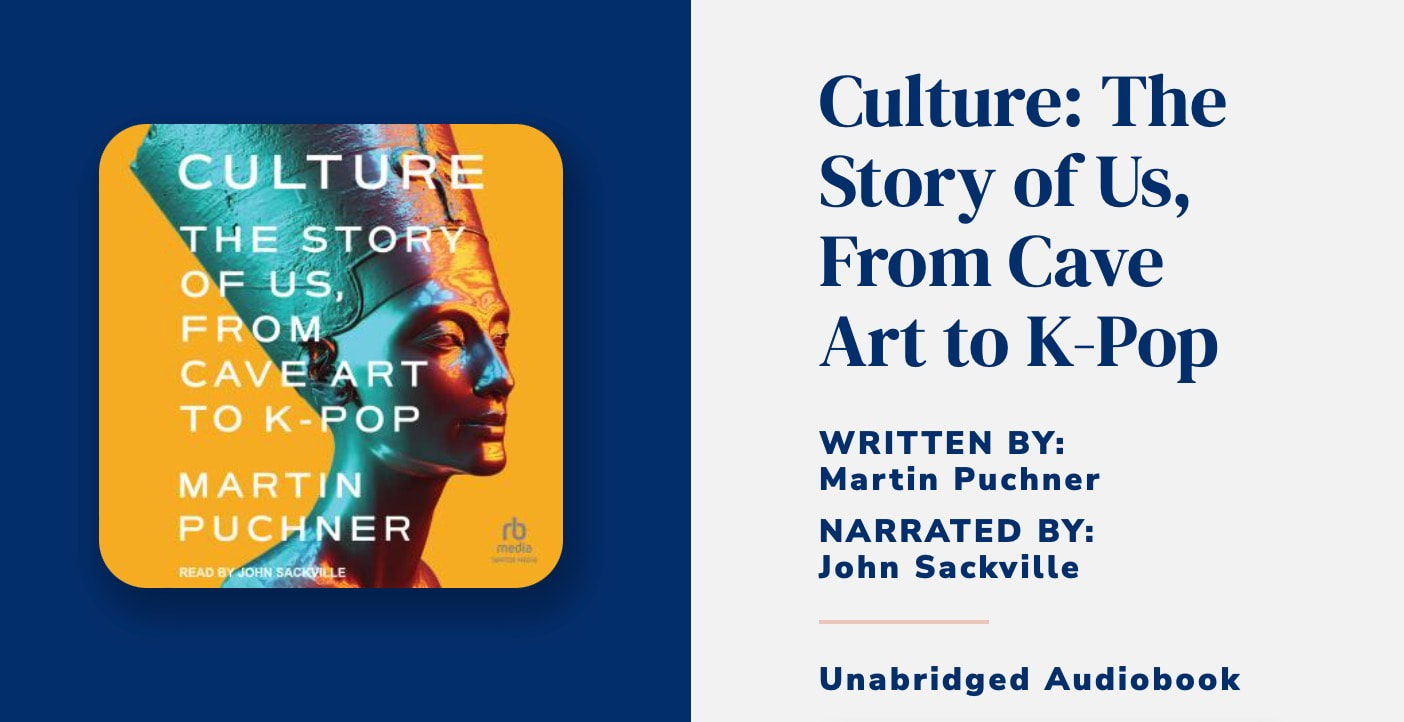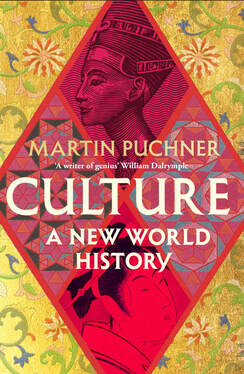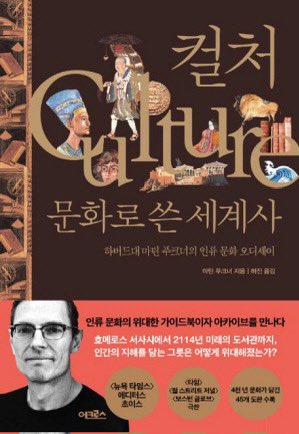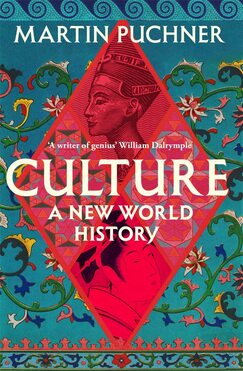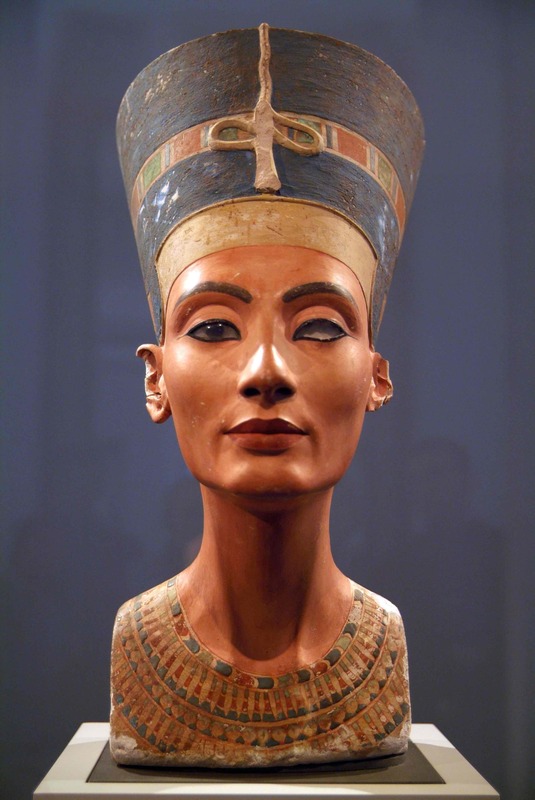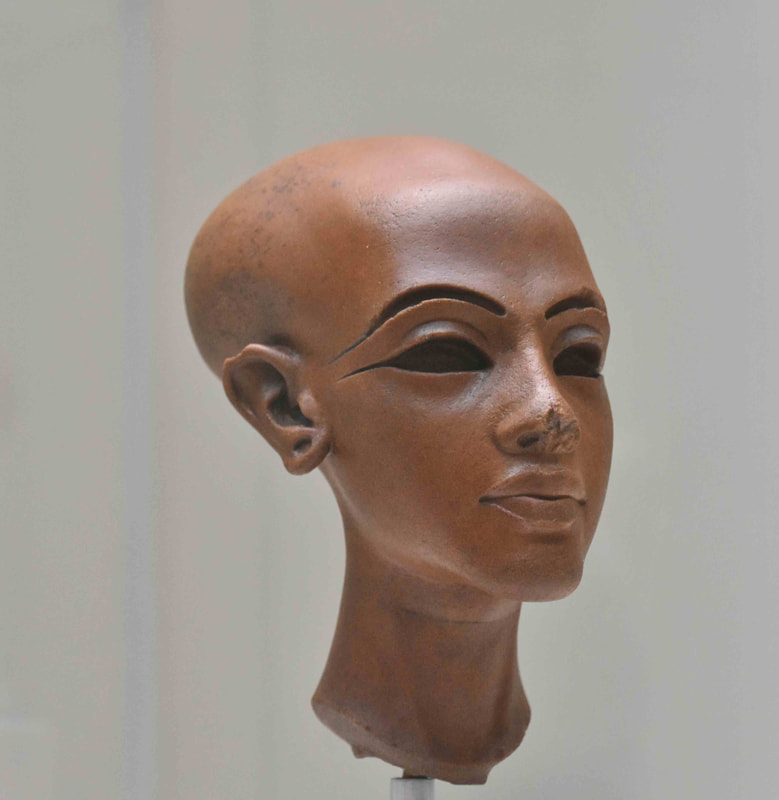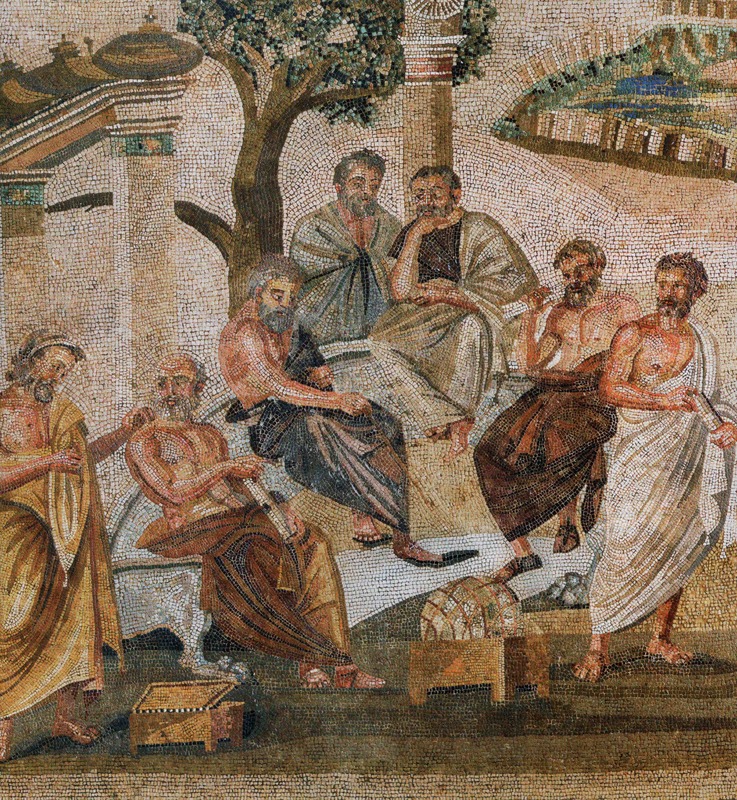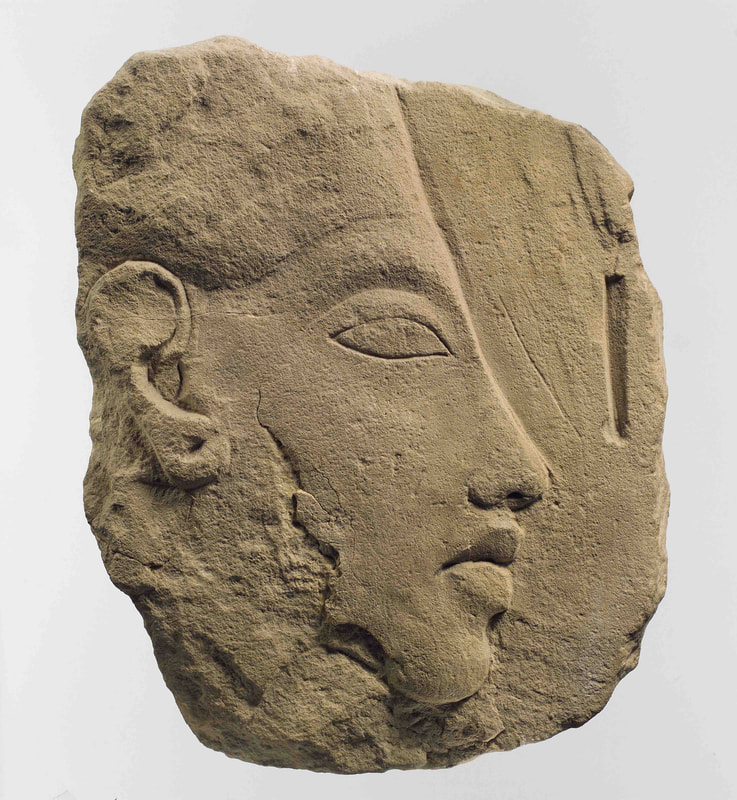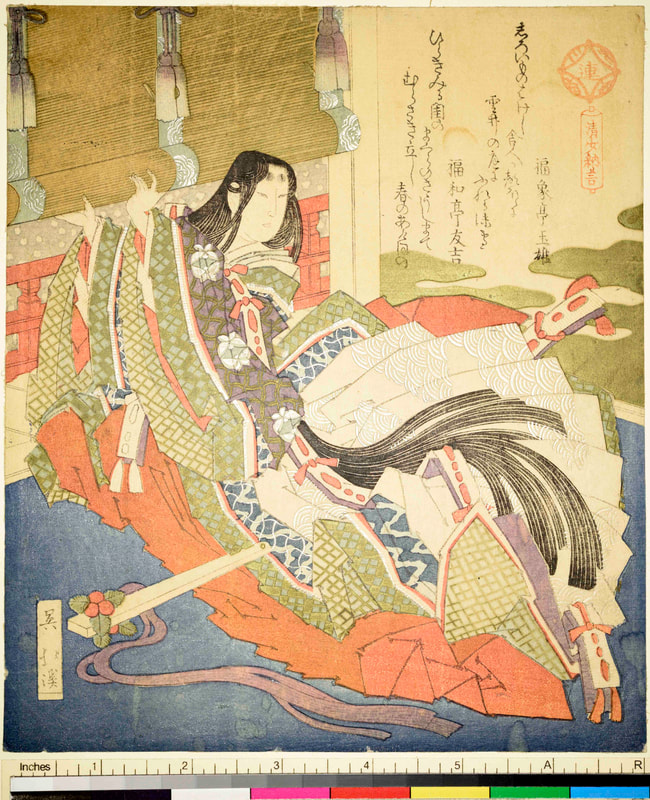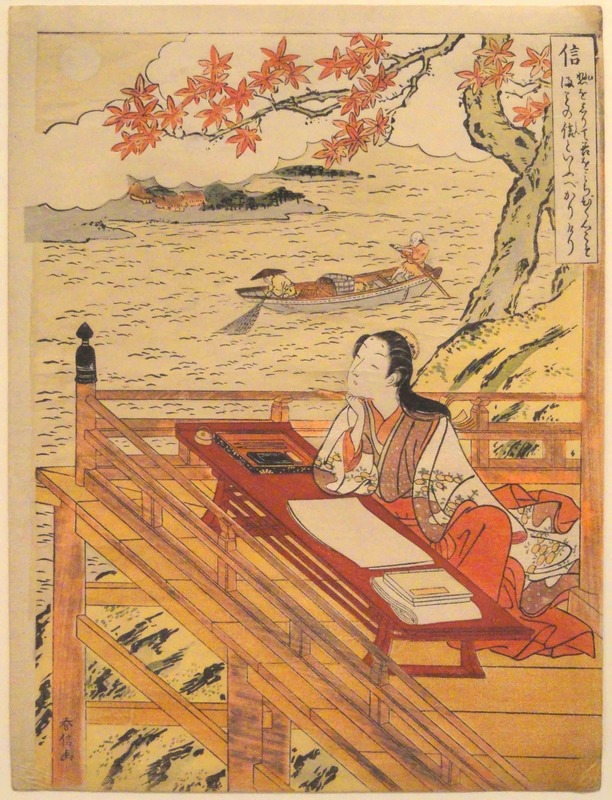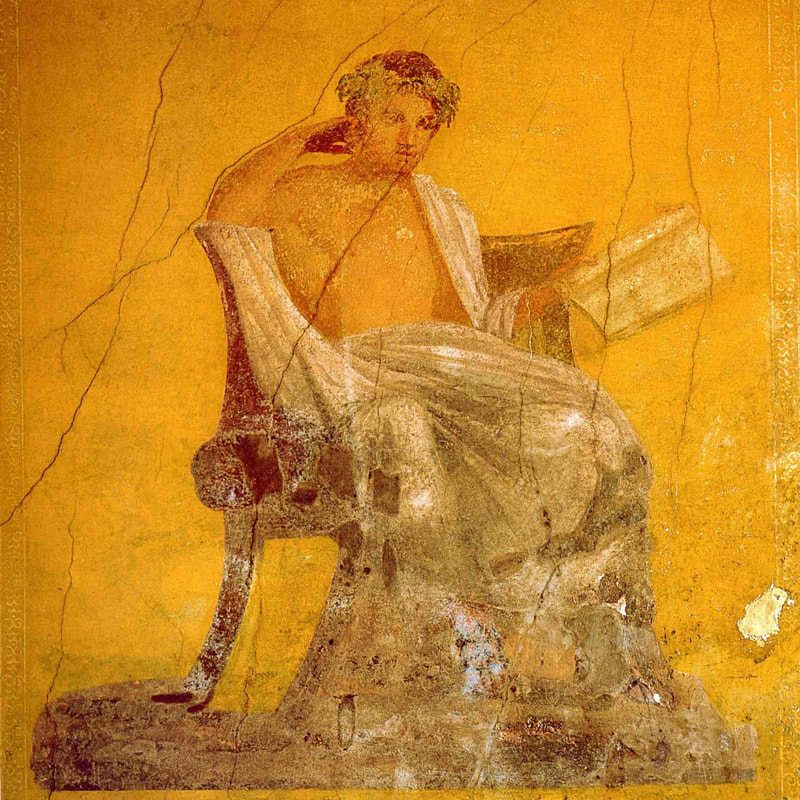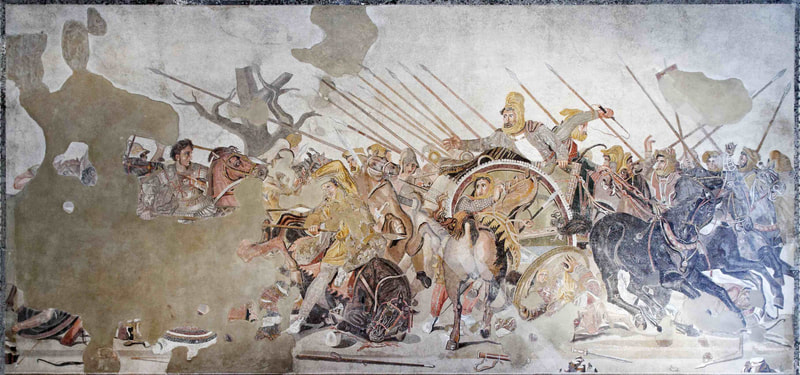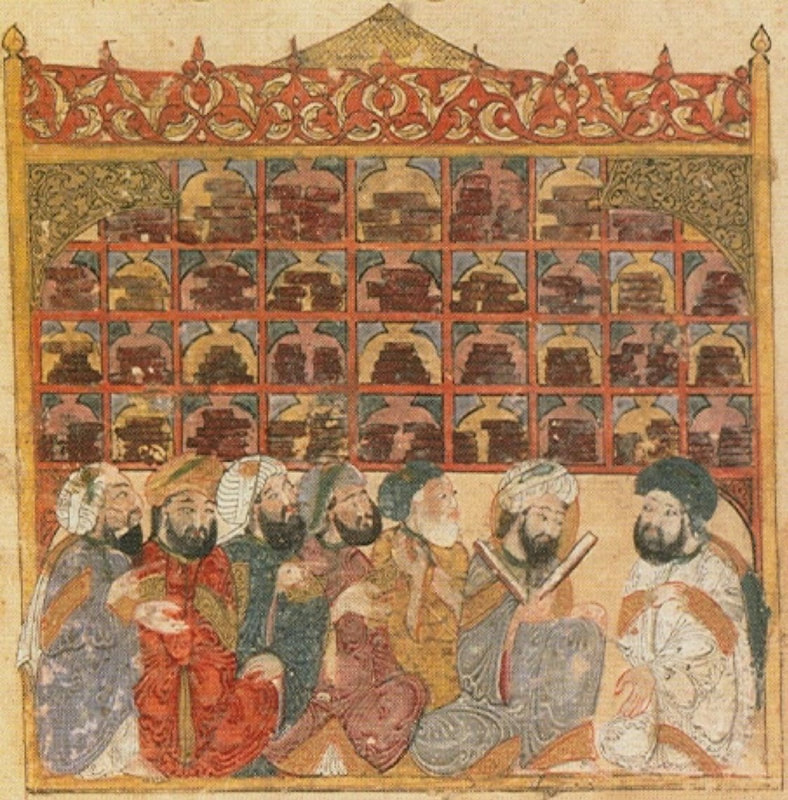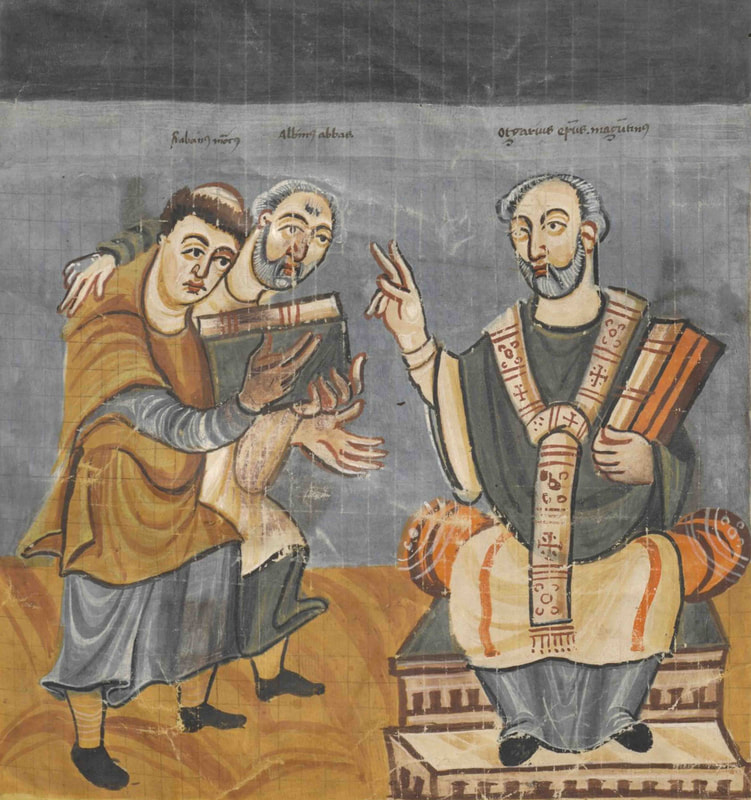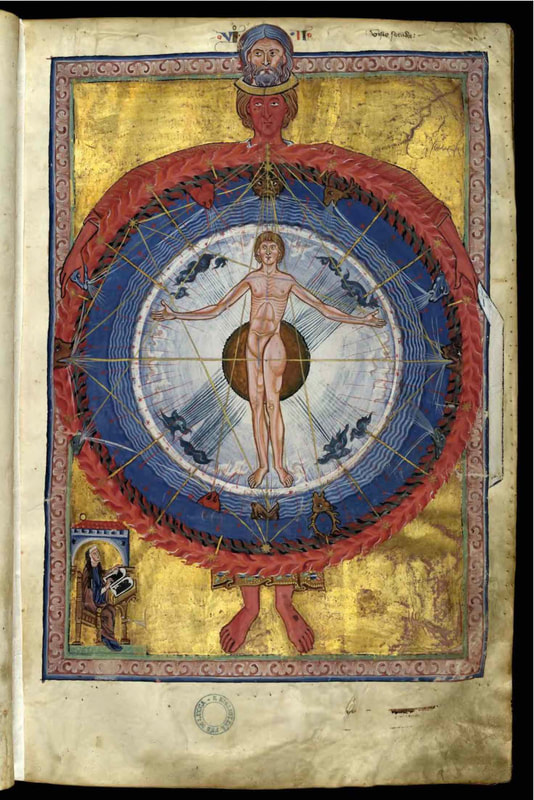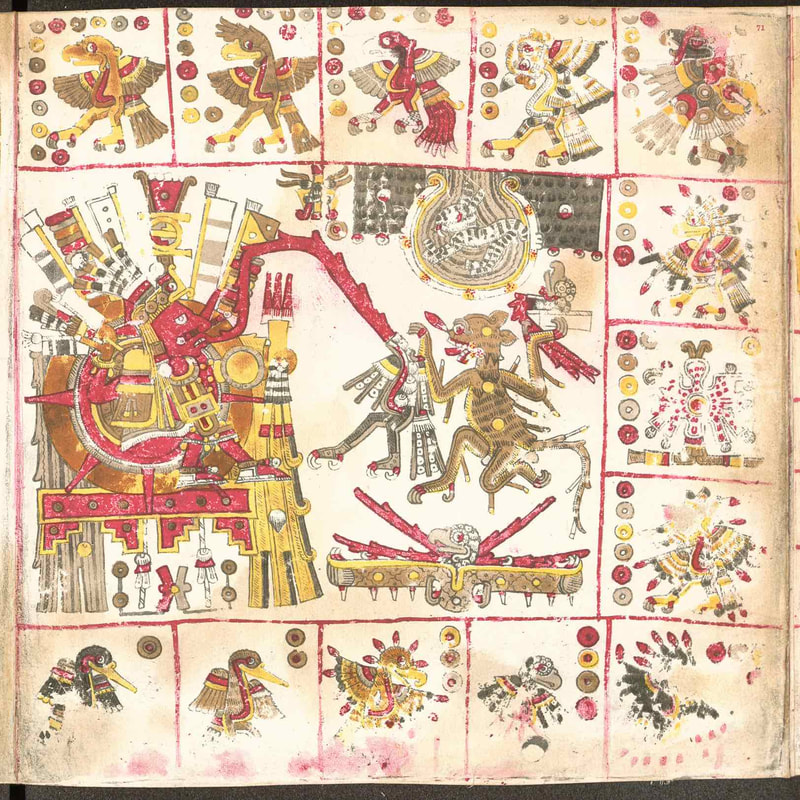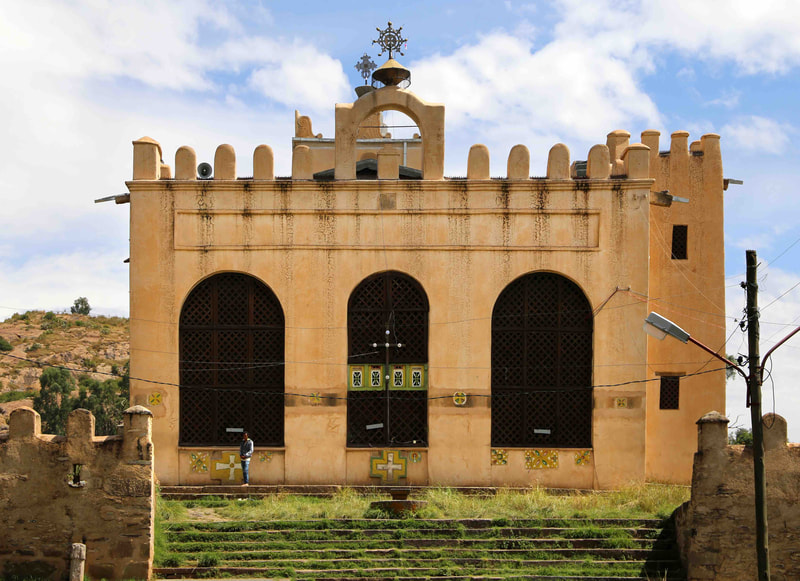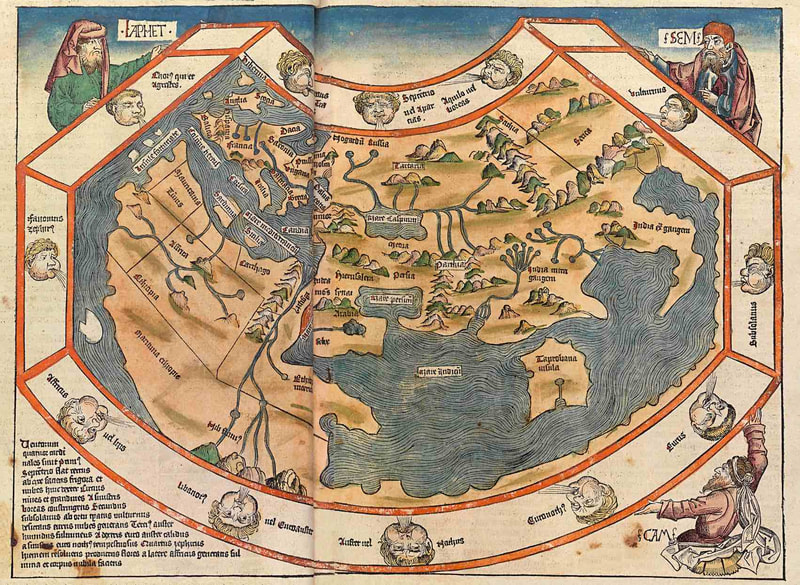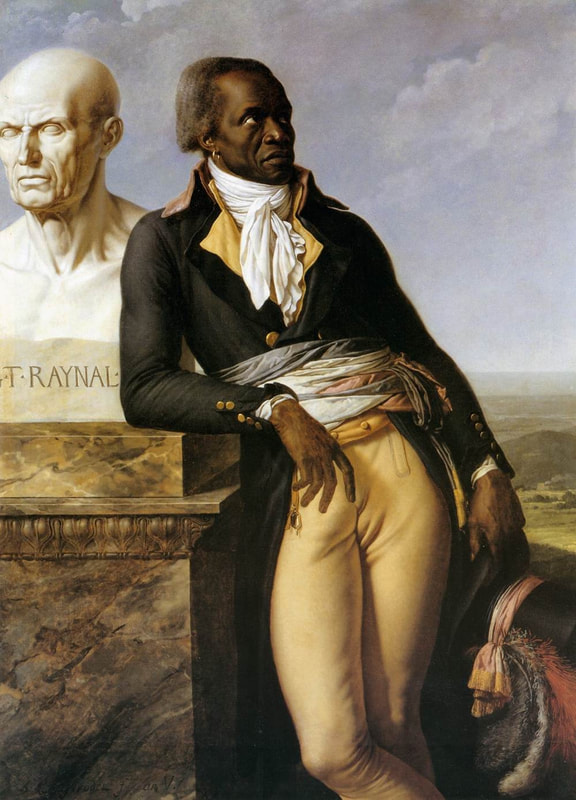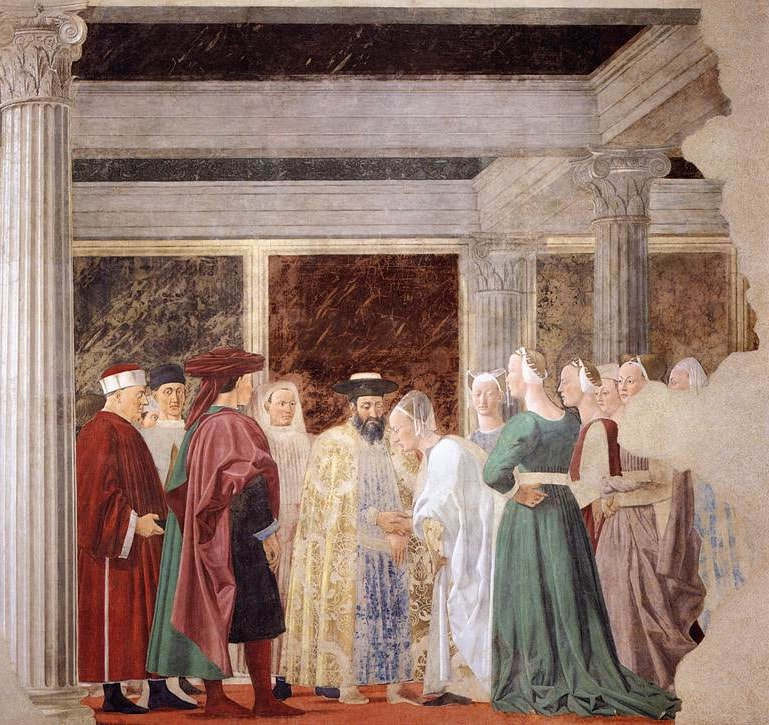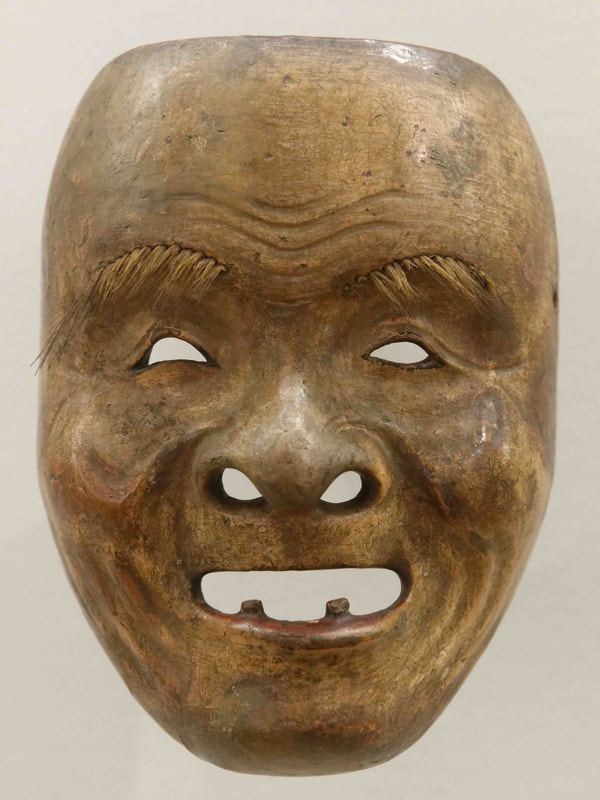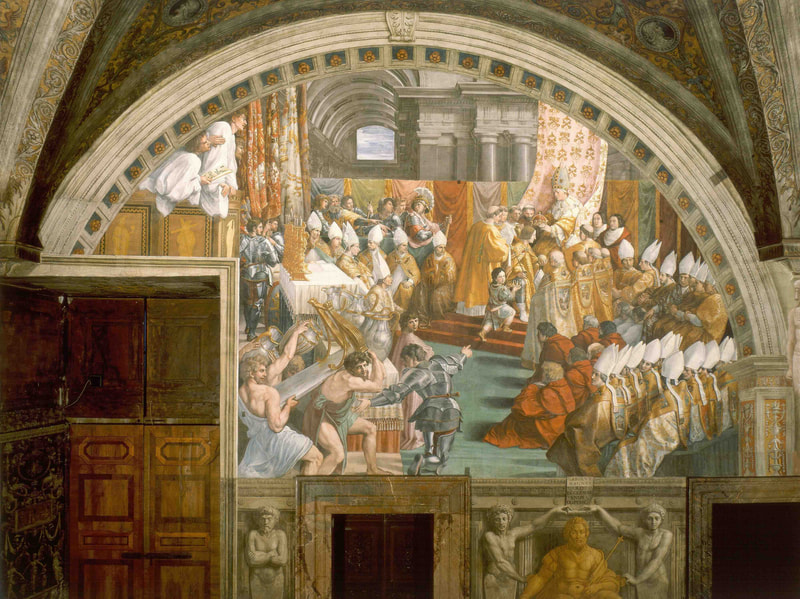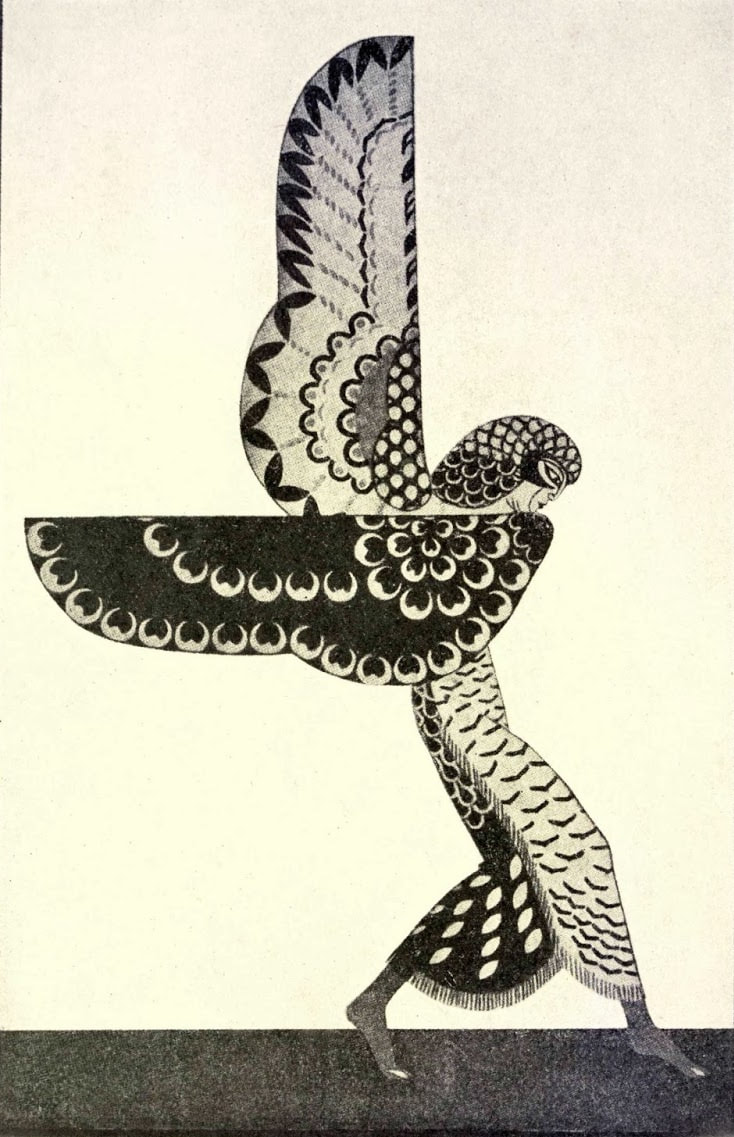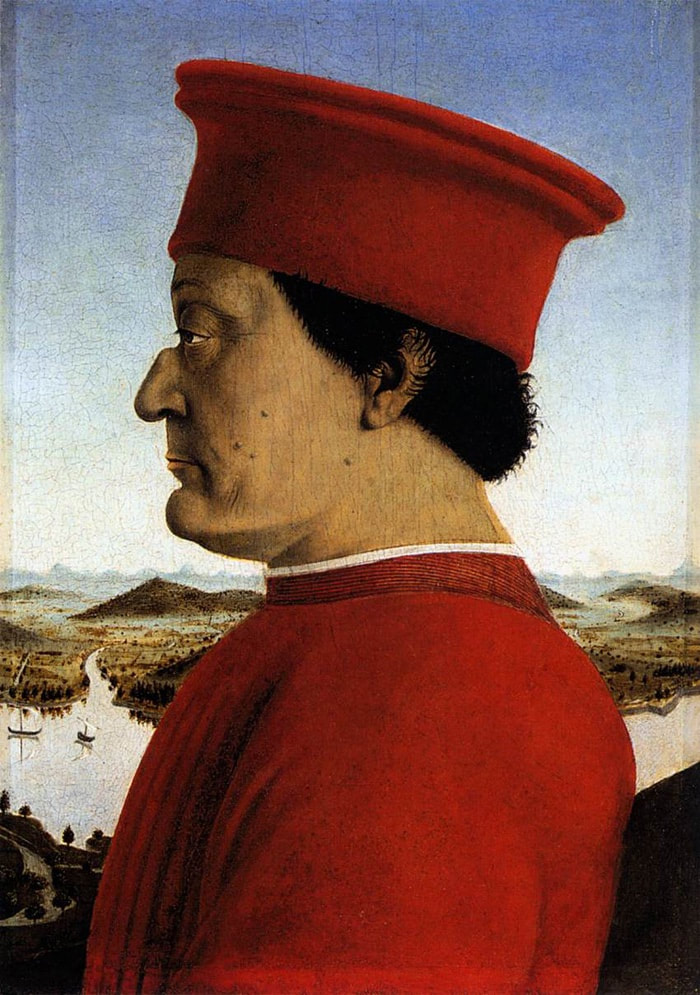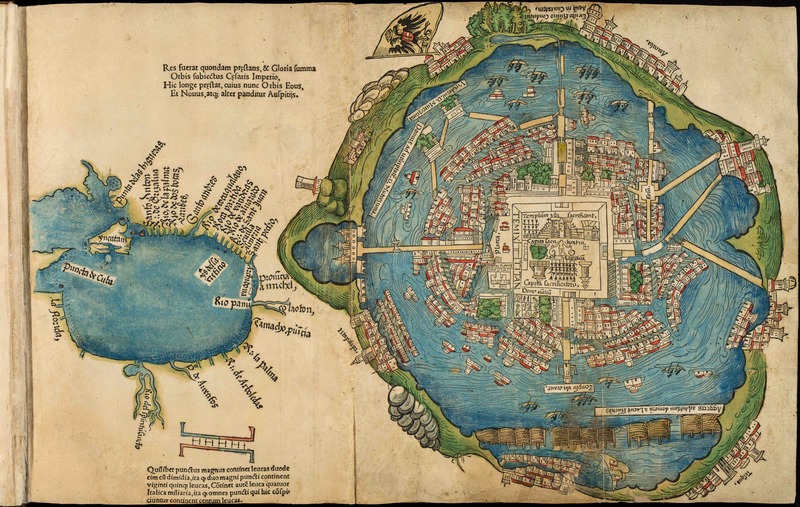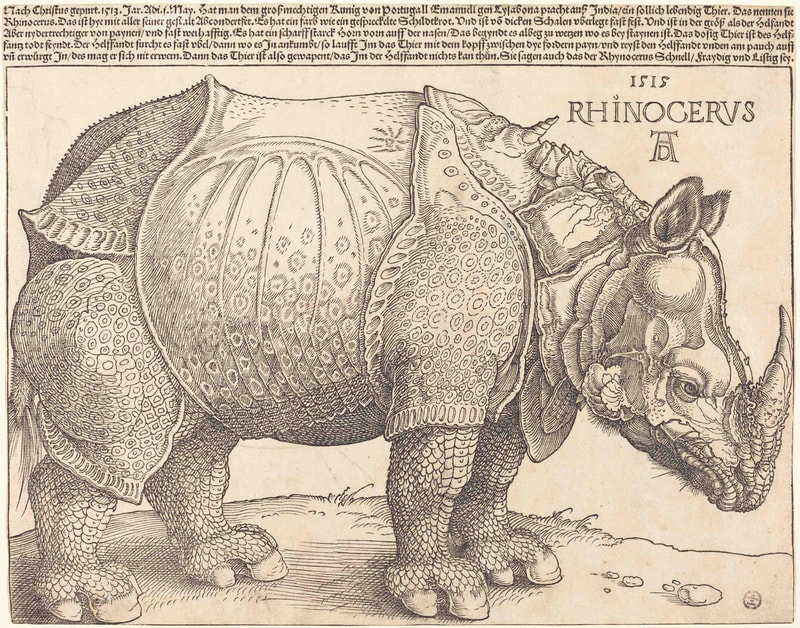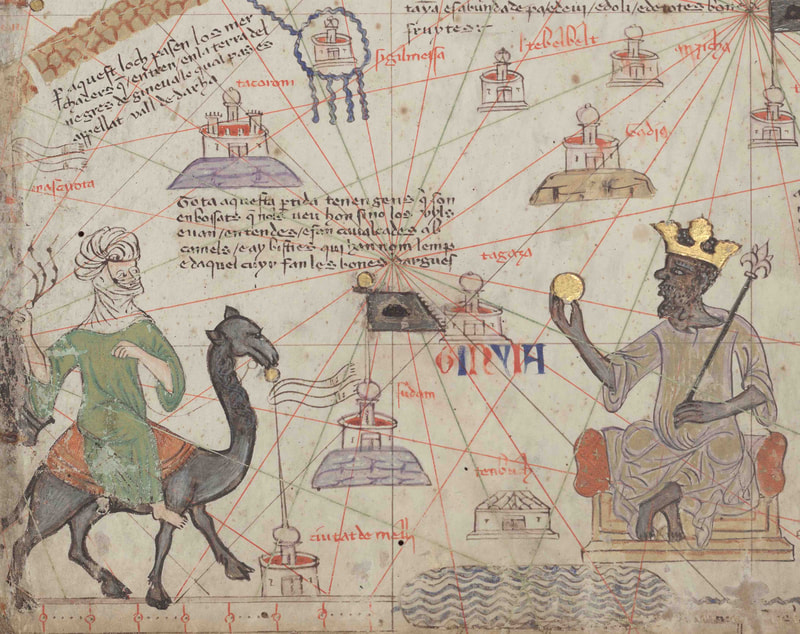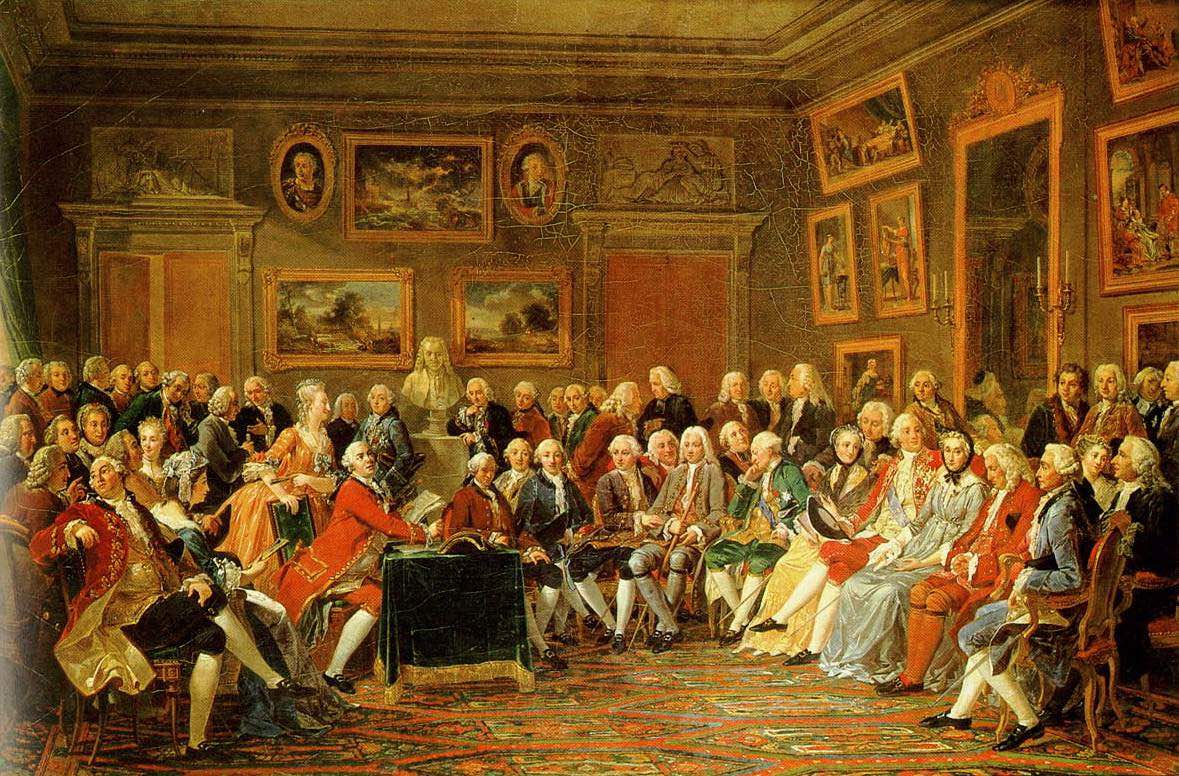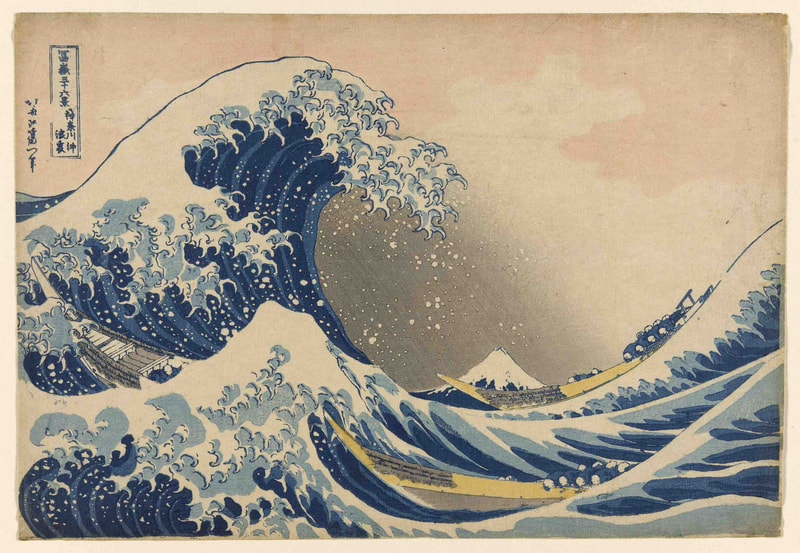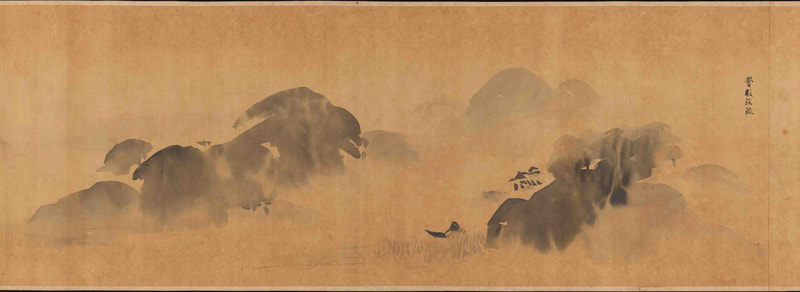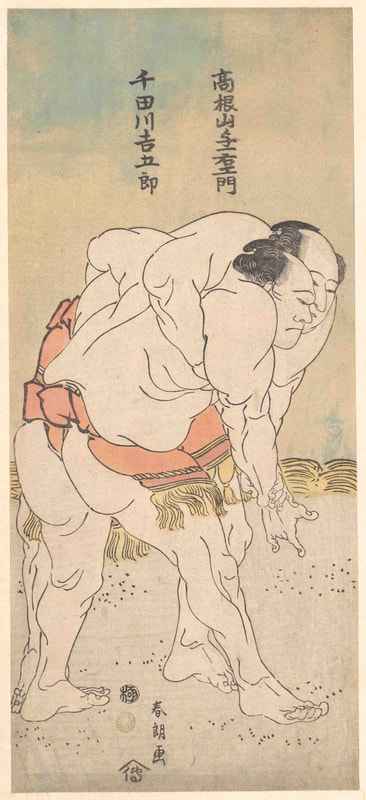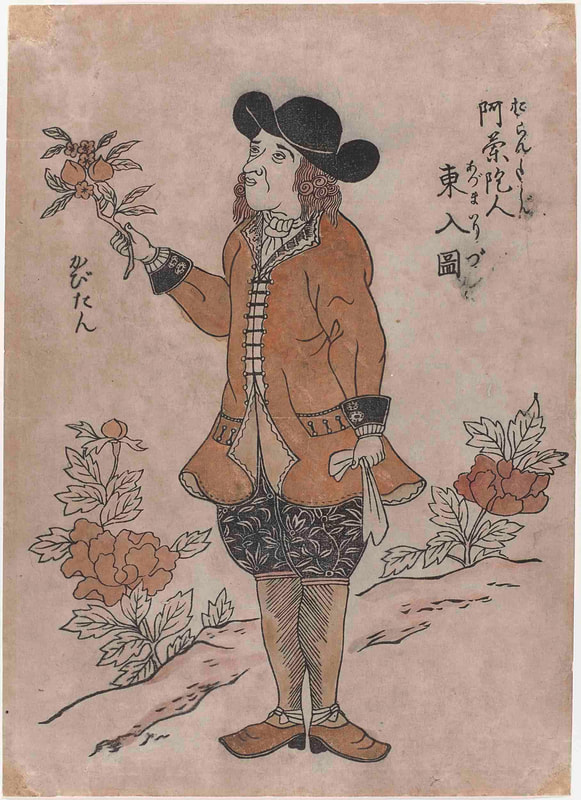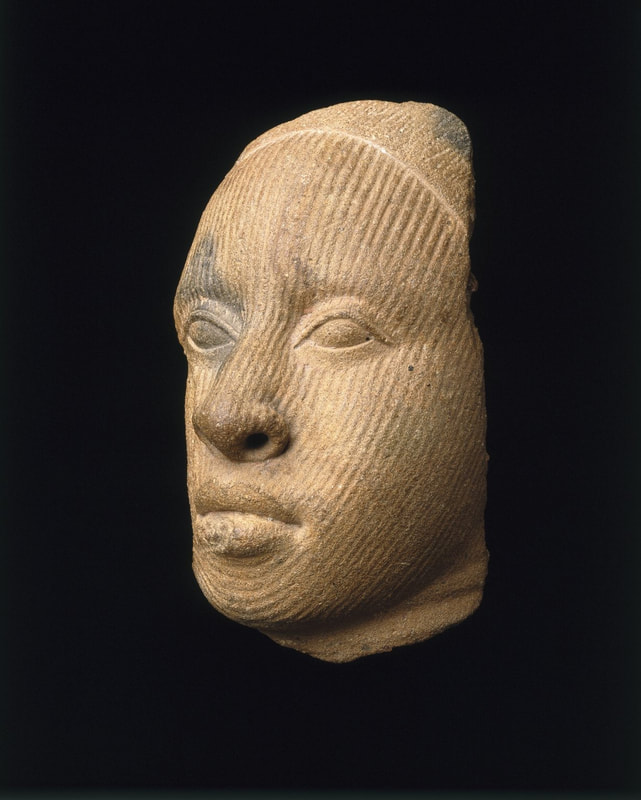
What good are the arts? Why should we care about the past? For millennia, humanity has sought to understand and transmit to future generations not just the “know-how” of life, but the “know-why”—the meaning and purpose of our existence, as expressed in art, architecture, religion, and philosophy. This crucial passing down of knowledge has required the radical integration of insights from the past and from other cultures. In Culture, acclaimed author, professor, and public intellectual Martin Puchner takes us on a breakneck tour through pivotal moments in world history, providing a global introduction to the arts and humanities in one engaging volume.
From Nefertiti’s lost city to the plays of Wole Soyinka; from the theaters of ancient Greece to Chinese travel journals to Arab and Aztec libraries; from a South Asian statuette found at Pompeii to a time capsule left behind on the Moon, Puchner tells the gripping story of human achievement through our collective losses and rediscoveries, power plays and heroic journeys, innovations, imitations, and appropriations. More than a work of history, Culture is an archive of humanity’s most monumental junctures and a guidebook for the future of us humans as a creative species. Witty, erudite, and full of wonder, Puchner argues that the humanities are (and always have been) essential to the transmission of knowledge that drives the efforts of human civilization.
From Nefertiti’s lost city to the plays of Wole Soyinka; from the theaters of ancient Greece to Chinese travel journals to Arab and Aztec libraries; from a South Asian statuette found at Pompeii to a time capsule left behind on the Moon, Puchner tells the gripping story of human achievement through our collective losses and rediscoveries, power plays and heroic journeys, innovations, imitations, and appropriations. More than a work of history, Culture is an archive of humanity’s most monumental junctures and a guidebook for the future of us humans as a creative species. Witty, erudite, and full of wonder, Puchner argues that the humanities are (and always have been) essential to the transmission of knowledge that drives the efforts of human civilization.
|
Reviews:
Puchner's style is amiable, accessible . . . the result, fluent and engaging, . . . a reader-friendly book. Behind Mr. Puchner’s upbeat paean to cross-cultural give-and-take you hear whispers of fear—fear of a new age of iconoclastic closure, in which grudging latecomers reject the arts of far away and long ago and choose isolation over circulation. But that may be another story, for a darker book. Boyd Tonkin, Wall Street Journal This is a mighty, polymathic work . . . he's also a master storyteller. . . . The tales he weaves here almost have a fable-like quality; they have a beginning, a middle and an end, and characters with clear motives and ambitions and triumphs and tragedies. Each chapter makes you want to jump to the next. . . . he also cares about the clarity and flow of his prose. "Culture" is one of those books that show how great ideas can be expressed lucidly within a narrative structure. . . . Puchner has provided us a cultural map that traverses centuries and intercontinental byways and detours, always returning to what makes us human. It is a gift to be savored. Chris Vognar, Boston Globe Fearless and exhilaratingly erudite, Martin Puchner’s panoramic tour of human culture across the millennia is a riveting page-turner. Revealing the beauty and necessity of cultural cross-pollination and borrowing, Puchner’s tour de force is the perfect antidote to our increasingly dreary and close-minded times. Amy Chua, author of Political Tribes Puchner vividly recounts many times when the importation of a foreign story has positively transformed a culture. . . The same narrative skill and sympathetic imagination shape Puchner’s 14 other lively case studies of the power of cultural syncretism. Robert N. Watson, Los Angeles Review of Books Culture is a breakneck, utterly captivating survey of the cultural transmission of ideas, stories, and songs—how they survive, change, vanish, and are borrowed, refined, coopted, and grafted through time. Reading this book was like taking a course in the history of humanities from a world-class professor with a rapacious, global, up-to-the-minute curiosity. I underlined sentences on every page. Anthony Doerr, author of Cloud Cuckoo Land If anyone wants to know what it is for comparative literature to encompass the globe, they need only read this remarkable book. Kwame Anthony Appiah, author of The Lies that Bind: Rethinking Identity Martin Puchner’s timely book takes us on a breathtaking tour of world history, reminding us that as we judge the past, one day we, too, will be judged, and that when we ignore or try to erase our cultural heritage, we are only impoverishing ourselves. Louis Menand, Pulitzer Prize-winning author of The Metaphysical Club In 15 compellingly written chronological chapters, Puchner explores the grafting,borrowing, storage, rediscovery, decline and revival of culture. His aim is to show the ways in which “everyone is influenced by someone; every instance of originality can be traced to things borrowed from others”. And what is important, is “not what we borrow, but how we borrow, what we make of what we find”. In short, how were make the past for our own purposes. . . Puchner argues forcefully that culture thrives on syncretism not purity. Jane Shaw, Financial Times Judging by its title, Martin Puchner’s new book might sound like an encyclopedia or a textbook—a massive tome that will cover the entire history of human culture. Puchner, Wien professor of drama and of English and comparative literature, is in fact the general editor of such a book, the Norton Anthology of World Literature (2018). But while Culture hopscotches between eras and continents with commanding ease, it doesn’t try to cover everything. Rather, it focuses on 15 historical episodes—some well-known, others fairly obscure—to illustrate a central thesis: the value and necessity of cultural appropriation.In today’s cultural climate, this takes some courage. . . . The most important question raised by this fascinating book is whether an age that regards culture neutrally, as a resource to be preserved and administered, is capable of producing a genuinely new culture of its own. Adam Kirsch, Harvard Magazine Martin Puchner has exceptional and invaluable gifts: intellectual fearlessness, dazzling erudition, trenchancy tempered by breadth of mind, and a humanist’s eye for minute evidence that illumines huge problems. He leaps daringly among well-chosen vignettes to show us what cultural change is like: contingent, fragile, unpredictable, and always dependent on our willingness to exchange objects, people, and ideas. Felipe Fernandez-Armesto, author of The Oxford Illustrated History of the World Puchner really is a bit of a genius. William Dalrymple, author of The Anarchy Why do we make art? Why do we tell stories? What is it about humanity that just has to build a pyramid or write a concerto or spray paint the side of a subway car? With Culture, professor and public intellectual Martin Puchner attempts to answer these questions—along with a seemingly infinite array of others—as he takes the reader through millennia of human creation, always wondering what’s at the heart of our need to achieve. –JD. LitHub's most anticipated books of 2023 Martin Puchner, a professor of literature at Harvard University, embarks on a quest to connect the dots between various time periods and civilizations using the through line of arts and culture. From ancient Greek theaters to the sculpture of a South Asian goddess to the rise of K-pop, the author illustrates how his field, the humanities, allows for the global transmission of knowledge—and thus the growth of civilization. People across distance and time—like a Chinese pilgrim returning from India with Buddhist texts—are in constant dialogue with each other. “The arc of cultural history,” he writes, “bends toward circulation and mixture.” Laura Zornosa, Time Puchner presents us not just a view of cultural evolution, but possibly an off-ramp from contentious identity politics. It’s there in his subtitle: We are all members of different communities, but we are also “us,” heirs to all the cultural adaptation that has gone before us and all dependent upon the dynamic for the vitality of our individual subcultures and whole societies. Joel J. Miller, substack Culture . . . is a wide-ranging, globe-spanning book that makes an enduring argument about culture, history and the interconnectedness of civilizations. Puchner memorably explores the way that different cultures overlapped over the years, contemplating everything from a South Asian artifact found in the ruins of Pompeii to Albrecht Dürer’s interest in Aztec art. Tobias Carroll, InsideHook More than a work of history, Culture is an archive of humanity’s most monumental junctures and a guidebook for the future of us humans as a creative species. Witty, erudite, and full of wonder, Puchner argues that the humanities are (and always have been) essential to the transmission of knowledge that drives the efforts of human civilization. Next Big Idea Club, Must Read February Title A wide-angle take on the continuum of human creativity. . . The book argues against glib claims of cultural appropriation – arguing that even when we want to resist ‘disrespectful’ uses of other cultures and exploitative tourism, it is not helpful to rely on a property or ownership concept. What gives any culture vitality is this pastiche, this history of borrowings. Times of India A Harvard professor goes wide in this study of the humanities and human creativity, looking at standout moments and what they can tell us about our past and future. As he guides readers along a Nefertiti to TikTok continuum, he shows how cultural exchange and innovation help societies address some of life’s most existential questions. Joumana Khatib, New York Times, books of the week Focusing on morally fraught and often violent moments of cultural exchange, these vivid portraits of art, diplomacy, and travel grant expansive insights into the abounding internal contradictions that come down to us in our shared glorious, corrupted, vital, inspiring, and conflicting traditions. John Fisher, Politics and Prose Martin Puchner's Culture: A New World History manages to achieve something not all histories do: to make you come away feeling that you've learnt something. Martin Hall, Morning Star A remarkable new book. Sudipta Datta, The Hindu A wonderful new book. . . A twofold thesis unifies the book. One is that the leftist ban on “cultural appropriation” entails a misunderstanding of the way cultures can appreciate (in both senses) when they meet, rather than merely collide. This seems true: if I think your dinner order looks excellent, and therefore decide to order the same menu item, that is very different from sticking my fork into your plate and gobbling a chunk of your entrée. Puchner’s other thesis is that the conservative aversion to immigration and multiculturalism whitewashes the wonderfully multicolored patchwork of human history. He shows that those who reach across cultures can be heroic rather than invasive, arrogant, or exploitative. Robin Varghese, 3 Quarks Daily So many books these days are described as being ‘sweeping histories’; Culture, which promises in its subtitle to take us from our most primitive artistic impulses all the way to the machinery of modern-day fandom. But what intrigues me most about Puchner’s latest isn’t its scope—it’s its driving question: ‘What good are the arts?’ In my more hopeless moments, this question bubbles up inside me, and I’m chomping at the bit to hear Puchner’s answer, grounded in history and informed by cultures around the world. Sophie Stewart - The Millions If you’re in the mood for a breezy tour of thousands of years of cultural development all over the world, Martin Puchner’s Culture is your ticket. George Kelley In a final plea, Puchner notes that only 8% of the incoming class to Harvard in 2021 expressed a primary interest in the arts and humanities, thus confirming art critic Christopher Allen and Professor Neill’s worst fears. It can only be hoped this book, with its wealth of sources for further reading as well as illustrations, can help redress the world’s problems that can’t be solved by technology alone. Nevil Gibson, National Business Review Best books of the week, Financial Times This weeks notable books, Daily Kos Most Anticipating for Feb 2023, Bookshop Books of Brilliance February title 14 Books to Read in February, Amy Haimerl Staff pick, Politics & Prose Best books to read on Kindle, Michael Kozlowski, Goodereader McNally Robinson, What to Read title of the season New York Society Library pick Scottsdale Herald, What We're Reading Digital Museum, Book of the Month, April Indigo, Top 10 on-fiction bestsellers |
Martin Puchner’s new book is a forceful rebuke to those who argue that culture can be owned by groups, nations, religions or races. . . . Puchner is an adept storyteller who uses narrative to show that the common trait among all human cultures is skillful stealing in service of explanation. Ismail Muhammad, New York Times
Exhilarating....elegantly written and full of erudite lore, this vibrant history illuminates the inveterate human yearning for expression. Publishers Weekly A thoughtful, generous vision of human creativity across centuries of culture. Kirkus A lovely and accessible book . . a cracking read. Ed Vaizey, former Minister of Culture, member of the House of Lords, on Times Radio You could look at this week’s recommended books list as a sort of lab report, with a hypothesis followed by the evidence that supports it. The hypothesis comes courtesy of Martin Puchner’s rousing book “Culture,” which argues that the debate over cultural appropriation and assimilation overlooks the essentially fluid nature of culture in the first place: Societies are constantly bumping into one another across time and space, he shows, and when they do they steal whatever suits their purposes to help them thrive. . . an elegant historical survey. Gregory Cowles, New York Times, Editors' Choice Eminently readable . . . The books' great strength lies in its ability to swoop deftly and lightly between things that may be familiar to us in themselves, but which we might be tempted to separate out in our attempts to form of picture of the world. . . . [a] bracing narrative of cultural transmission. Edward Wilson-Lee, Times Literary Supplement Puchner creates a perfectly balanced and incisively abridged version of the story of human culture. Ultimately, this is an examination of the making and transport of ideas, which is always an interaction between old and new. Each chapter builds a new layer, adding to the depth and complexity, while Puchner also provides a global who’s who of cultural diffusion. Anne Doventry, Booklist More than a work of history, Culture is an archive of humanity’s most monumental junctures and a guidebook for the future of us humans as a creative species. Witty, erudite, and full of wonder, Puchner argues that the humanities are (and always have been) essential to the transmission of knowledge that drives the efforts of human civilization. Next Big Idea must-read title, February 2023 As much a book of philosophy as a sweeping history, Martin Puchner’s Culture is calculated but bold in its approach to traversing and analyzing centuries of art, entertainment, and knowledge. Jaunty and readable but never lacking in depth, Culture hops through countries and eras to deliver a resonant argument for the necessity of our common creativity. Lauren Puckett-Pope, Elle Magazine In “Culture,” Puncher makes a convincing case for all culture being, on some level, a pastiche of different influences . . . And in today’s world, where different cultures are constantly interacting with one another thanks to mass media, globalization and the internet, we’re likely to see a surge of (and backlash to) cultural syncretism that will increase the need for humanists who can, as Puchner writes, “communicate the significance and excitement of cultural diversity” well into the future. Michael Patrick Brady, WBUR An exhilarating roller coaster ride through the culture of humanity. Yes, it’s speedy, but it’s incisive and inclusive. Everything new is interacting with the old in our culture. Katie Stover, NPR Culture delivers. It is well written, nuanced and light in style, spinning a series of historical narratives in an erudite and engaging way. The Conversation/Yahoo News For the arts lovers in our lives, no book this year packs quite the cultural punch — and poses such interesting questions — as Martin Puchner’s history of how culture — everything from visual art and music to theater and architecture — has moved across continents, changed forms and shaped people’s lives. San Diego-Union Tribune Puchner’s brief narrative of invention and propagation of monotheism underlines the fact that it is not a divine given or a ‘natural’ evolution. . . Focusing on art objects and literary works, Puchner makes a welcome, deliberate move to underline women’s contribution in the making of human culture. The Tribune Culture, in laying bare the severely complicated ways cultural traditions continue to evolve, addresses fascinating questions about how cultural choices are made from the options that are left after being erased, leading to more entangled threads of influence. Art Review From a statue of a South Asian goddess in the Roman city of Pompeii or the 7th century Chinese Buddhist monk Xuanzang who took a 16-year pilgrimage to India to translate and bring back scriptures, to the growth of Baghdad as a cultural hub and the formation of the House of Wisdom during the Islamic Golden Age, Puchner delivers story after story, revealing the influxes, vacuums and nuances of culture and how they affect our understanding of history and our present. Maan Jalal, The National Enriching and educational, New Zealand Herald In his new book, “Culture: The Story of Us, From Cave Art to K-Pop,” Martin Puchner, the Byron and Anita Wien Professor of Drama and of English and Comparative Literature, guides readers across thousands of years of human history, highlighting turning points in language, art, and music. Anna Lamb, Harvard Gazette Travelling through Classical Greece, Ashoka’s India, Tang dynasty China, and many other epochs, this triumphal new history reveals the crossing points which have not only inspired the humanities, but which have made us human. Book Lounge -------------------------------- Interviews, excerpts, conversations and responses: - Excerpt from epilogue, published on LitHub - Boston Globe, with Amy Sutherland - Interview with InsideHook - Interview, Next Big Idea Club, Book Bites - Q&A with Deborah Kalb - Interview, Times of India - The page 99 test - Interview with Shanghai Review of Books - Interview, Sounds About Right - Interview, with Shay Kaur Grewal, BBC London Radio - Slate, Political Gabfest - Interview, with Nihal Arthanayake, BBC 5 - Interview, First India - In conversation with Andrew Keen, on Keen On and Lit Hub - In conversation with Ed Vaizey, on Times Radio - Cave art and AI, The Art Newspaper - Interview on cultural borrowing, Harvard Gazette - Professor Buzzkill, podcast - Jaipur Bites, in conversation with Anna Della Subin - My list of best books to discover forgotten masterpieces of world literature, Shepard Express - Australian radio, ABC, with Sarah Dingle. - Interview on cultural appropriation, with Joel J Miller -------------------------------- Upcoming presentations: Jan 23: Jaipur Literary Festival Jan 31: Cambridge Forum/WGBH (free) Feb. 6: Boston Athenaeum (official book launch) Feb. 11: Crimson Writers Conference Feb. 17: 92nd Street Y, New York Feb. 24: 92nd Street Y, New York Feb. 27: How to Academy, online, 6:30 GMT March 3: Steiner Lecture, Queen Mary, London March 9, Copperfield Books (online), 12pm Pacific March 19, Phoenix Book Club March 25, Remin University, Beijing April 3, Digital Museum April 17: Smithsonian Museum, DC April 21, Xiamen University April 24: Intelligence Squared May 3: University of Erlangen/Nuremberg May 12: University of St. Gallen May 15: Bath Literary Festival July 2: Chalke Valley Festival |
Audiobook:
International editions:
Some images from inside the book:
